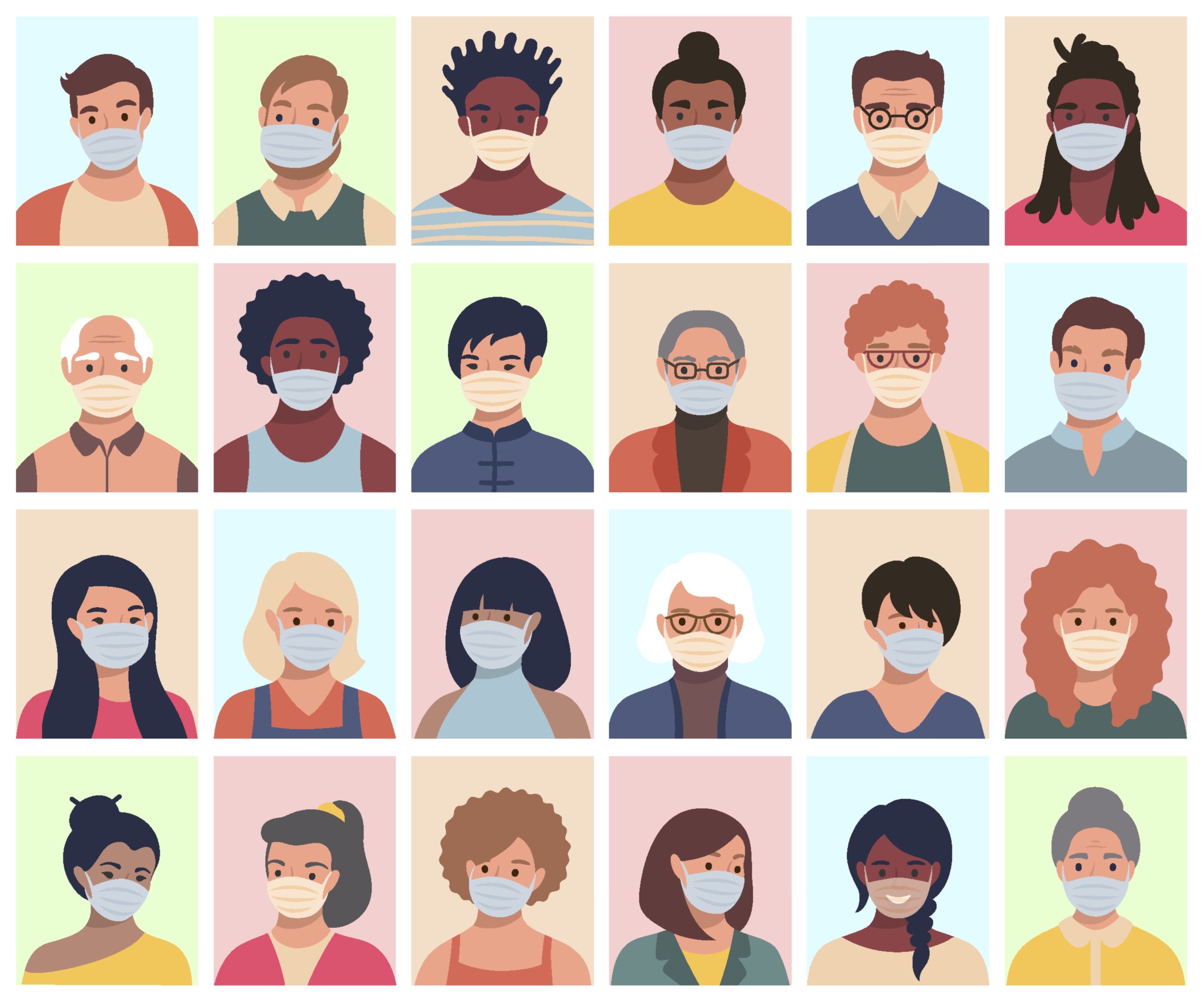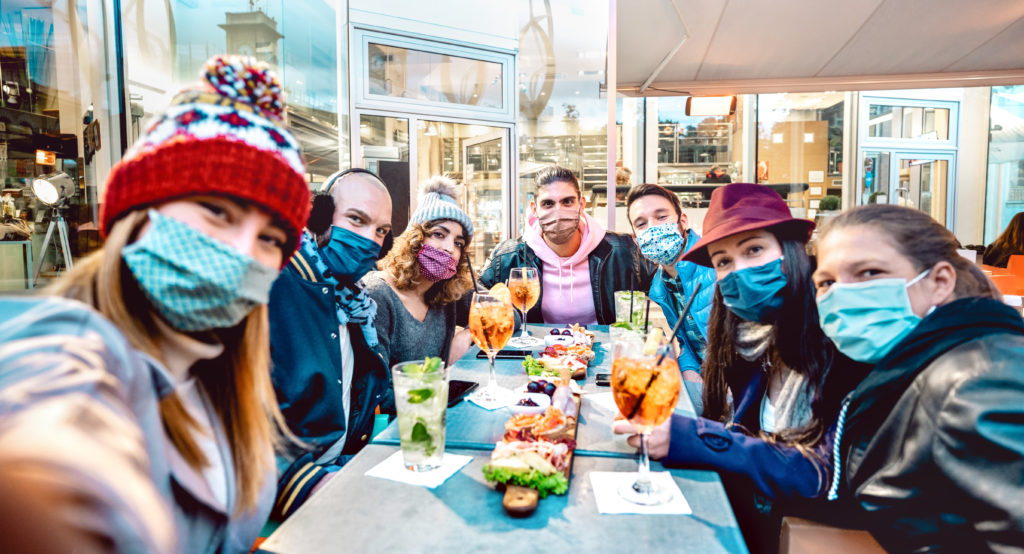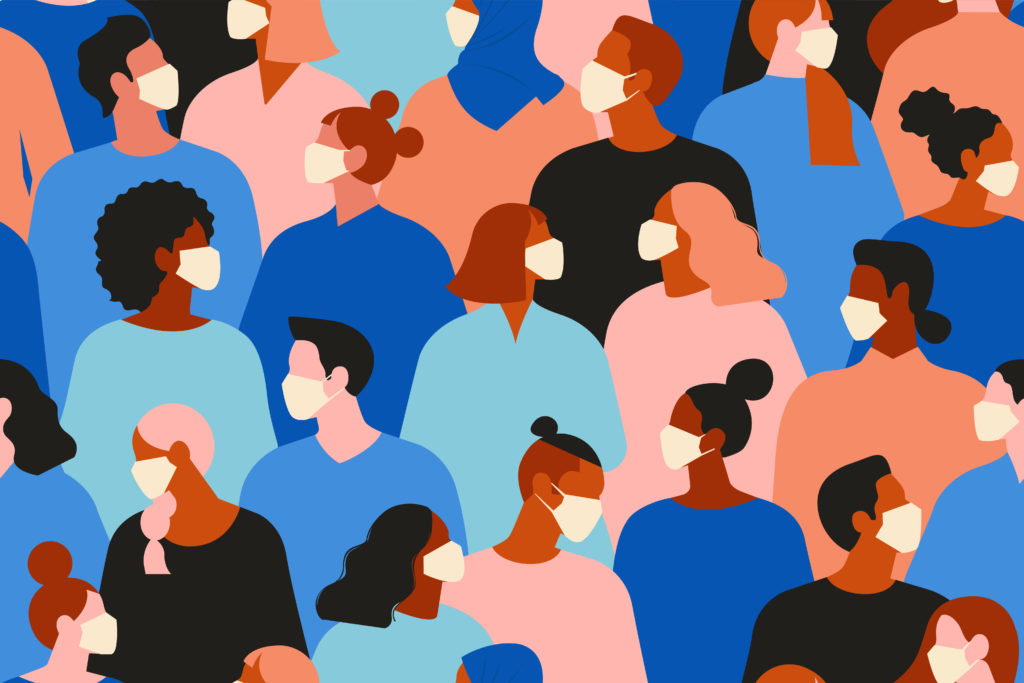Lost rites of passage, home with parents, online classes, separated from boyfriends and girlfriends, and launching into a future of uncertainty. This is the story of being young in a pandemic.
The future looked bright for Gen Z. The longest running bull market was escorting them into the workplace and record unemployment indicated that they could find decent work. Now, in the span of a few short months, they have experienced a lifetime of generation defining events: widespread protests, a racial reckoning, a global pandemic, and a possible depression disguised as a recession.
During the 2008 recession, students were caught off guard. Seniors in college saw their employment agreements voided and graduates moved home in droves. Many millennials had done what they were told—they worked hard in high school, they went to college, and they were told that the result would be gainful employment. There was obvious disappointment when that promise was unfulfilled.
When it comes to the pandemic, today’s students are also caught off guard. They are also disappointed. But here is the difference: The students I speak with today never thought things were going to work out. Perhaps it’s skepticism inherited from their Gen X parents, or growing up with an Obama presidency and the false promise of a post-racial America, or maybe it’s from witnessing a series of institutional failures during their formative years.
Four months of interviews with college students and high school seniors has shown me the resilience and pragmatism of today’s youth. They have a keen understanding of all the ways the world will disappoint them and how they can still find beauty in the mess. It’s not altogether sad. It’s also hopeful because if these students can remain pragmatic without becoming apathetic, they will be well equipped to tackle the uncertainty of the future.
Before I launch into pandemic stories from students, a disclaimer: I interviewed college students and high school seniors who are intending to go to college in the fall—this automatically limits my scope because many young people opt out of or can’t afford college. In addition, most of my interviewees are helping pay for college but they are not solely responsible for the cost. This is not representative of all young people. These are observations from a sample of college or college-bound people. The students I chose to highlight are ones who best represent many stories I heard.
This is what it is like to be young in America during a pandemic:
The first consistent reflection I heard was that Gen Z isn’t mourning the lost rituals of coming of age—we are.
If you don’t have memories of walking to get your diploma for graduation, perhaps you won’t miss that ritual. I get sad when I think about how these students won’t have a graduation party or go to prom but that’s because those are special memories for me.
Over the course of the interviews, I have been reminded that every generation places their own sacred cows upon the youngest generation. We have our cherished memories and we expect those memories to be cherished by them as well. But that’s not how it works. We are not nostalgic for moments we’ve never had.
So, the sadness that I hear throughout the interviews seems to be more about their unceremonious catapult into adulthood rather than their loss of particular traditions.
They aren’t surprised that a black swan moment has derailed their entrance into adulthood. But, like all generations, they were caught off guard by the rapid acceleration of the coronavirus and the abrupt school closures.
On February 2nd, the US declared its first coronavirus death and, by March 26th, we were leading the world in confirmed cases. The virus went from a side story in an international report to an all-out pandemic in an instant.
For James, a high school senior in Virginia, his last day at school started normally. By lunch, there were rumors that someone in their county had tested positive for coronavirus. By evening, a city council member had tweeted that keeping the schools open was irresponsible. By midnight, there was an email in his inbox stating that classes would take place online indefinitely. So that was it. No senior prank, no last hurrah, no send off. He left school one day, and now, he will not return.
Aubriana, a junior at The University of Kansas, was studying abroad in February and was preparing to travel around Europe during a break from classes. She received an email from her study abroad program saying that they were monitoring the coronavirus and would keep students posted. One week later she received an email saying that the program was over and she needed to get back to the US within 36 hours. She’s now finishing her junior year online at her parent’s home in Scottsdale, Arizona.
I talked to students who still have their belongings in lockers or dorm rooms. Many students thought they were taking a short break but were expecting to return before the school year ended. James, Aubriana and their peers were left with un-endings.
Imagine your favorite movie ending two-thirds of the way through. The lovers never reunite, the hero doesn’t return from battle triumphantly, the music never swells.
This is what it is like to launch into the unknown in a flurry of un-endings.
For older generations, many of their plans are on pause. Recently retired baby boomers have had to postpone travel plans. Generation Xers are seeing their expectations of an empty nest postponed, much to their frustration or delight. Millennials are delaying weddings or waiting to start having kids. People are waiting to leave their jobs, waiting to search for new ones, waiting to take the GREs, waiting to go on dates, waiting for life to resume.
For today’s young adults, however, their plans are not postponed. They are cancelled.
Miriam is a senior in high school in Minneapolis, a competitive dancer, and a student council member. Every senior dancer at her studio choreographs and performs a solo performance at the final recital. After the solo, her parents were going to walk her across the stage where she would mark the end of her dance career at the studio that has felt like a second home for most of life. Miriam said, “I wasn’t a natural dancer. I had to show a level of dedication I didn’t even know I was capable of in order to make it this far. My senior solo was supposed to be a celebration of years of hard work.” Miriam continues to practice her solo over Zoom with her coach, but the meaningful ending she was anticipating won’t happen. In a showing of resilience, Miriam told me, “I’ve learned I can love to dance without anything else. I don’t need a studio and I don’t need a performance. I can just dance for the joy of it.”
Aleck, a senior at Henbrix University in Arkansas, was going to work at the summer camp he has attended for most of his life. He saw camp as a transitional place to move from education to real life. He and his friends were going to spend one last summer all together, in nature, in the place they love most. Aleck wanted to bask in childhood familiarity before launching into the unknown. “I’m very fearful of the future. This is the first time that I don’t have a plan. Camp has always carried me nicely from one part of life to the next. Now, I’m just abruptly put into a place of incredible uncertainty.”
A silver lining does exist—more family time.
One question I ask every interviewee is whether there is a silver lining to this whole experience. The most prevalent response was, “more family time.” Many expect that answer from older generations—parents who suddenly get a windfall of time with their children. But I am hearing this from college students. A life stage we used to associate with rebelling against parents seems to be morphing. I asked what their days look like now and many of them told me about family game nights, movie nights, workouts, baking and dinners.
Of course, not everyone is as fortunate as the students I interviewed. There has been a lot of necessary coverage regarding the unsafe housing situations that some are facing during this crisis. However, the friendship-like relationship between many Gen X parents and Gen Z kids, which had been reported even before the pandemic, suggests that the crisis will strengthen the closeness of these bonds even further.
There is an overwhelming feeling that this slower pace is a welcome change.
I’ve heard stories about the pleasant surprise of socially distanced birthday parties and reconnecting via Zoom or FaceTime with old friends. Ngan, a sophomore at Boston College, walked a marathon with her friends from all over the country. They would Facetime and text as they hit different mile markers. Libby C., a senior in high school at Saint Paul Academy, baked cookies and dropped them on her friends’ doorsteps.
For many, Covid is a welcome break from a meticulously managed childhood. Dr. Paula Faas argues in her book, The End of American Childhood, that many of these students have been shuffled around to various activities from a young age. They grew up in a competitive environment where exploratory childhood was nearly non-existent. Now there is nowhere to go, no one to see, no sporting event or music lesson to attend. And so they go on walks, they bake and cook, they play online games with friends. The end of their childhood won’t be marked by the conclusive celebratory bang of previous generations. Today the ending is a slower, hazier, softer finale. And maybe that’s ok.
What does all this mean for…
Education
These students miss their in-person classes. Sophie, a sophomore at Boston College, said, “The component of online learning that is hardest for me is the isolation from classmates and friends. The stress of assignments, papers, and exams was much harder to handle without a support system of students going through the same struggle.” Ryann, a freshman at Northwestern, told me that during online class discussions, some students have their cameras turned on and some have them off. She feels distracted in that environment because she’s wondering what’s going on with the off-camera classmates. James, a high school senior in Virginia, said, “I just miss being around other people and having a shared learning experience. I learned a lot by bouncing ideas off of other people and we can’t really do that now.”
They feel that their focus and academic performance is slipping. In the Inlay Insights/TruePublic study, 71% of students said they have been cheating more since classes moved online and 70% of students said their studying had been worse during lockdown. Aleck said, “Online classes will never be a viable replacement long term. There’s something to be said for just getting up and going to a different physical space. It signals to me that it’s time to learn. In the online classes, I’m way more distracted and less participatory.”
College students are missing aspects of the traditional college experience that have little to do with the classroom. It’s not just about frisbee in the quad. They feel the loss of intellectual debate, a melding of ideas, socializing and dating. Unfortunately, as Graeme Wood recently wrote in The Atlantic, “a properly functioning university is a never-ending festival of super spreader events.”
Ever practical, these students are in a tricky spot—they are unsatisfied with online learning but the price tag of college is too high for a subpar, socially distanced version of post-secondary education. Meanwhile, university administrators are asking themselves: “If we open, will the students even come?” I foresee an uptick in domestic gap year programs and community college pre-requisite classes in the short-term future.
Earning
There can be negative long-term financial effects for students who enter the job market during a recession. Jess Rothstein, of UC Berkeley, followed college graduates who entered the labor market after the 2008 financial crisis. By 2018, those who had landed jobs in 2010 and 2011 had a lower employment rate than people who graduated before the recession. That being said, I think it’s too early to make a prediction about their long-term earning potential because this recession is not a traditional boom-bust recession. We have no meaningful point of comparison.
However, their immediate earning potential is in a dire place. From March to April, employment dropped by a quarter for workers 20 to 24 years old. Without work, the question of returning to university becomes a financial question, even more than a health and safety question, for many students.
Libby, a freshman at The University of Minnesota, works as a lifeguard during the summers. This summer she was being promoted to manager and the pay bump was going to help substantially with tuition for her return to campus in the fall. Now that the pool is not opening, and there are no retail jobs, Libby is trying to figure out how to make money over the summer in order to cover next year’s tuition.
The Future
There is no way to know how historians will tell this story. Much of what will be written is based on the decisions we make today. But, after speaking with more than one hundred young people, I am left optimistic. I hear resilience in these conversations. Plan A was cancelled so young people are babysitting, delivering food for Door Dash, learning to code online, and training for solo marathons.
Gen Z is learning that life will look different than they imagined. These students may be lucky to learn something so essential at a young age. Knowing how to make the best out of unforeseen obstacles may be the precise skill needed to navigate whatever comes next.




